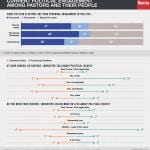The International Religious Freedom Act was signed into law 22 years ago today on October 27, 1998. The bipartisan bill was designed to promote religious freedom as a foreign policy of the United States, to foster greater religious freedoms in countries that are intolerant of religious freedom, and to advocate for people who are persecuted because of their religious beliefs.
To commemorate the anniversary, the U.S. Department of Health and Human Services, Office for Civil Rights, is hosting a virtual event online at 1 pm EST, entitled, “Religious Freedom in the Age of COVID-19 and Beyond.”
Speakers include former U.S. Senator and governor of Kansas, Sam Brownback, and now U.S. Ambassador-at-Large for International Religious Freedom, the director of the Office of Civil Rights, Roger Severino, Principal Deputy Associate Attorney General Claire Murray, Ambassador Andrew Bremberg, and former vice chair for U.S. Commission on International Religious Freedom, Kristina Arriaga.
“Born of the vision of America’s founders, our government understood that an individual, irrespective of their religion or beliefs, should be free to organize their lives in accordance with their consciences. Religious freedom and other themes of human dignity are – and will always remain – a core U.S. foreign policy priority. And the world has taken notice,” Brownback said.
Three of the world’s most egregious religious freedom abusers are the People’s Republic of China, Iran, and North Korea. All three countries “have tightened their coercive measures to silence their own people,” Brownback says. And China’s communist government “has sought to eradicate all forms of faith and belief that don’t align with Chinese Communist Party doctrine.”
Since the International Religious Freedom or Belief Alliance (IRFBA) launched in February 2020, 31 nations have pledged their commitment to a like-minded network of fostering religious freedom, the agency notes. Several countries have released individuals who were wrongfully imprisoned because of their religious beliefs, and reunited them with their families, as a result of the cooperative nature of the IRFBA.
“A global movement on religious freedom is now a reality – one rich in regional, cultural, and political diversity – testifying to a universal, unequivocal truth: every person, everywhere, has the right to believe or not believe, change one’s beliefs, speak one’s beliefs, gather and teach,” Brownback says.
In 2016, Congress voted unanimously to pass the Frank R. Wolf International Religious Freedom Act, which amended the 1998 law, designed to improve U.S. religious freedom diplomacy efforts globally, better train and equip diplomats to counter extremism, address anti-Semitism and religious persecution, and mitigate sectarian conflict.
Liberty Counsel Founder and Chairman Mat Staver notes that “Innocent people are imprisoned, tortured and persecuted for their faith. I’m grateful for leaders who are protecting people of faith instead of trying to control them.”












